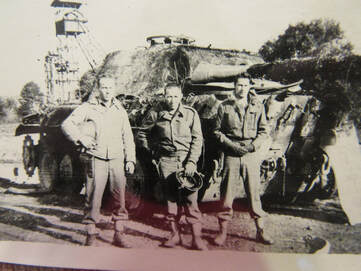 Remember the movie Chariots of Fire? Eric Liddell and Harold Abrahams, both world-class runners in the 100 meters were competing at the 1924 Olympics in Paris. Because of his Christian beliefs, Liddell refused to run in a 100-meter qualifying heat that took place on a Sunday, making it impossible for him to compete any further. However, a fellow teammate offered his place in the 400-meter race to Liddell, who had never competed at 400 meters. Liddell accepted and went on to win the gold in the 400-meters, while Abrahams won the gold in the 100-meters. It was a great movie. In 1924, my father was four years old, my mother three; the Wrigley Building in Chicago was completed as the headquarters of the Wrigley Gum Company; two U. S. Army planes completed the first round-the-world flight, taking 175 days; and the first Winter Olympics were held in Chamonix, France, in February, with Norway winning 17 medals and Finland coming in second with 11. In 1924, the Computing-Tabulating-Recording Company changed its name to International Business Machines Corporation (IBM); Simon & Schuster published the first crossword puzzle book; Nellie Tayloe Ross of Wyoming was elected the first female governor in the United States; and the Loeb brothers committed murder. The most important event of 1924, however, was that Adolf Hitler was tried in a People’s Court of Bavaria, a state within Germany, and was found guilty of high treason. Yeah, that wasn’t in my Top Ten, either. I knew that Hitler had spent a few months in jail, but didn’t remember anything specific about it. For all that is associated with Hitler, I never considered that any particular year was more significant than others. But 1924 was more significant--unbelievably significant. Being arrested for attempting to overthrow the Bavarian state government was crushing to him at the time (first, that it had failed; second, that the common sentence for high treason was hanging), but the trial afterwards made Adolph Hitler into everything he wanted to be, and set the context for everything that we remember him for. Looking at Hitler’s attempted coup, its failure, his arrest, his trial, his imprisonment, and the subsequent fallout made me interested in reading about Hitler, his beliefs, and his personality traits. I can only read what other people have said, but I have found him more dimensional than the typical caricature--the moustache, the slick-backed hair, the penetrating eyes, the shouting, the salute, the intense anti-Semitism, the pervasive evil, the psychopathic behavior. He had, in fact, rather ordinary personality traits that sound familiar to me. He was socially clumsy, had lower class sensitivities, heavily resented the upper class, was embarrassed by body odors (he apparently farted a lot and took medicine for it), became a vegetarian and a hypochondriac, and was inept around women (maybe because he considered them inferior, but maybe because they made him feel small; I know that feeling). He made jokes, but was more amused by other people’s jokes. He sometimes belly-laughed until he lost his breath. He had little regard for schedules and was habitually late for meetings (he would later require a full-time secretary to guide him through his day). He would stay awake most nights because he couldn’t sleep and then routinely stay in bed past noon. He wasted considerable time in idleness and caused others to waste their time as well. He was a famously bad dresser—wearing the same overcoat for years, using a tie until it frayed, having few clothes, never buying a new hat. His best friend was his dog, a German Shepherd named Wolf. He was amazingly harsh and vindictive towards his companions, making him a solitary figure while still being desperate for attention. Not counting his mother, he was never emotionally close or even open to anyone. Even Eva Braun lived life at a distance. She was isolated until she was called for, kept apart from visitors, could only be around Hitler at his discretion, and was allowed few friends of her own. He wanted her focus to be on him only. Rather than marching through his personal history, I have summarized some of his personality traits. As inadequate an approach as this is, you’ll see how the traits factor into his trial and imprisonment. I want to emphasize:
“I can recall the gaunt, pale-faced youth pretty well. He had definite talent, though in a narrow field. But he lacked self-discipline, being notoriously cantankerous, willful, arrogant, and irascible. He had obvious difficulty in fitting in at school. Moreover, he was lazy; otherwise, with his gifts, he would have done very much better…But his enthusiasm for hard work evaporated all too quickly. He reacted with ill-concealed hostility to advice or reproof; at the same time, he demanded of his fellow pupils their unqualified subservience, fancying himself in the role of a leader.” [He dropped out of school after the eighth grade. That was the extent of his formal education.]
There are more traits, but these reflect the foundations of his behavior by 1919 and will resonate with what is said at his trial in 1924. In the following four years, 1919-1923, Adolf Hitler would go from being a loner and “an oddball” to becoming one of the most powerful political figures in German politics. He had learned radical political concepts while living in poverty in Vienna for five years, then moved to Munich and joined the German army, swept up by the fervor of WWI. He fought four years in the trenches of France and Belgium, then continued in the army until he visited a meeting of the German Workers’ Party. He was intrigued, supportive, and then obsessed with forming a new government based on Socialism. His ability to debate the political leaders and to mobilize the group members was far beyond the capabilities of the others and he was asked to be their spokesman. The group changed the name to the National Socialist German Workers’ Party--Nationalsozialistischer Deutscher Arbeiterverein--abbreviated in German as the “Nazi” Party. Hitler accepted and soon rose to the leadership position. The Nazi Party became the venue by which he catapulted himself into being a widely recognized, gifted speaker. Meanwhile, Germany was readying itself for someone just like him. In 1923, Germany was in economic, social, and political chaos. In the few years after 1918, the German government [now a democracy, as demanded by the Treaty of Versailles] had changed eleven times; frequent elections brought heated clashes between the more than forty political parties trying to gain seats in the German parliament; inflation had made a single egg cost 80 million marks, a pound of butter, 6 billion, a glass of beer, 150 million; millions of men were out of work; rampant violence filled the streets; the Communists were infiltrating the various levels of society; and then France suddenly occupied the Ruhr, Germany’s industrial center. It infuriated the German people, while its government only begged for their restraint. Something had to be done. The humiliation had gone on long enough and things had to change. Mass demonstrations were held in Munich, demanding revolution; a coup was needed. The rumors began flying that one of the political factions was about to seize power. On the evening of November 8th, 1923, one of them did.
0 Comments
Leave a Reply. |
AuthorDon Willerton has been a reader all his life and yearns to write words like the authors he has read. He's working hard at it and invites others to share their experiences. |

 RSS Feed
RSS Feed